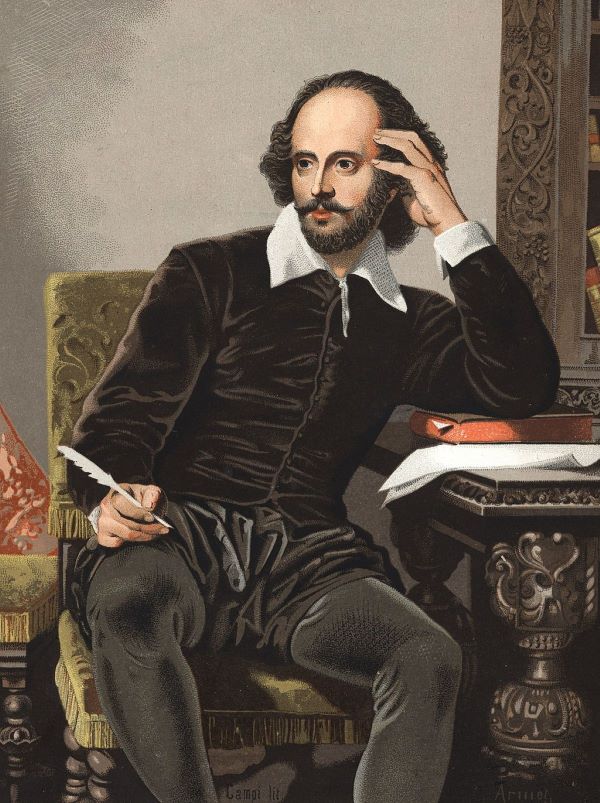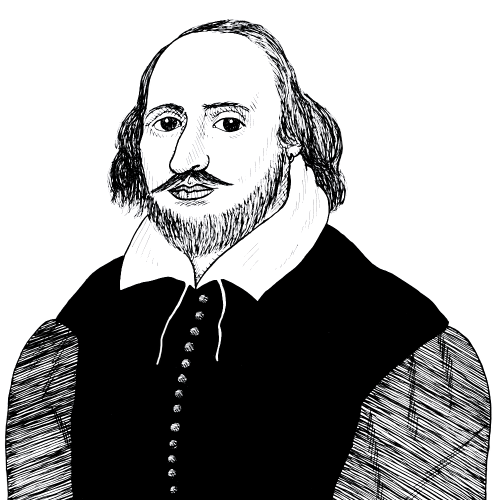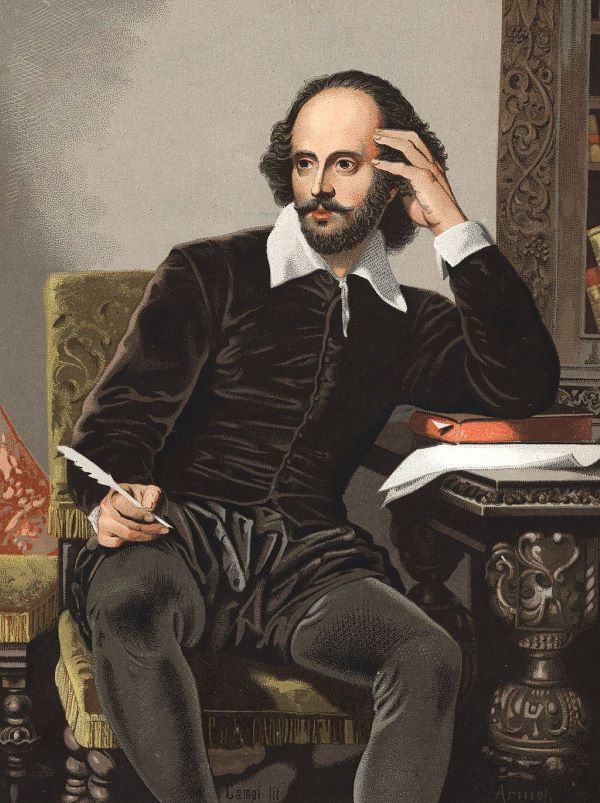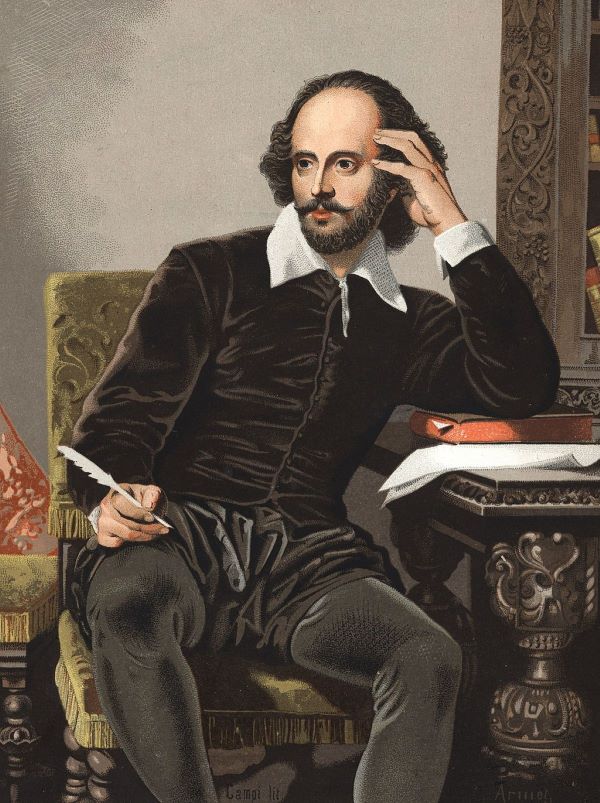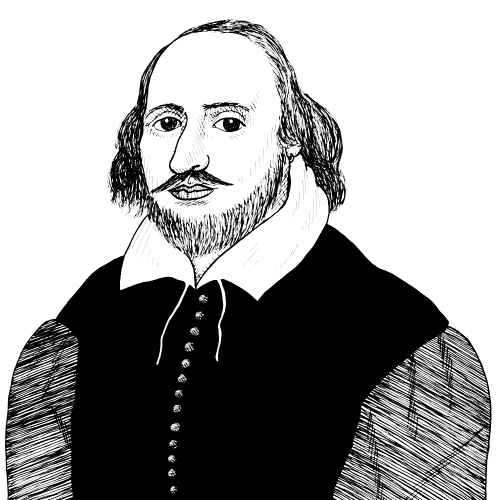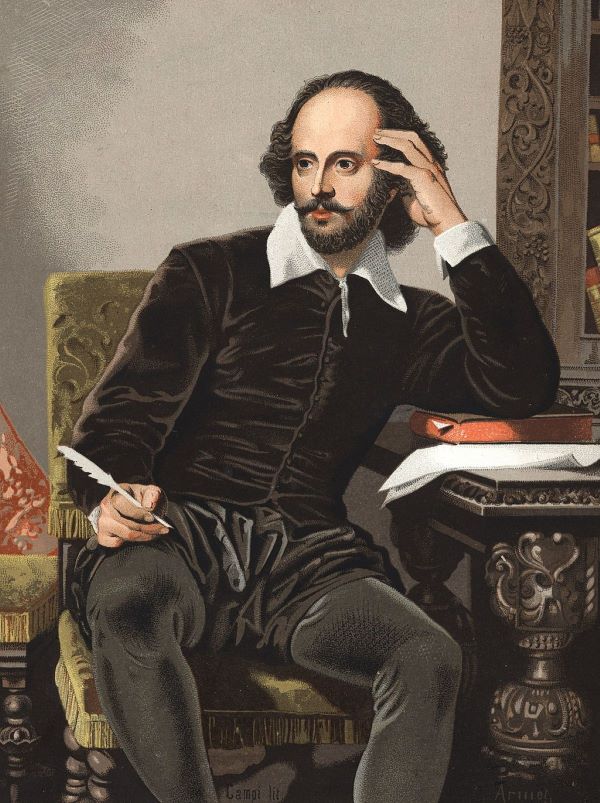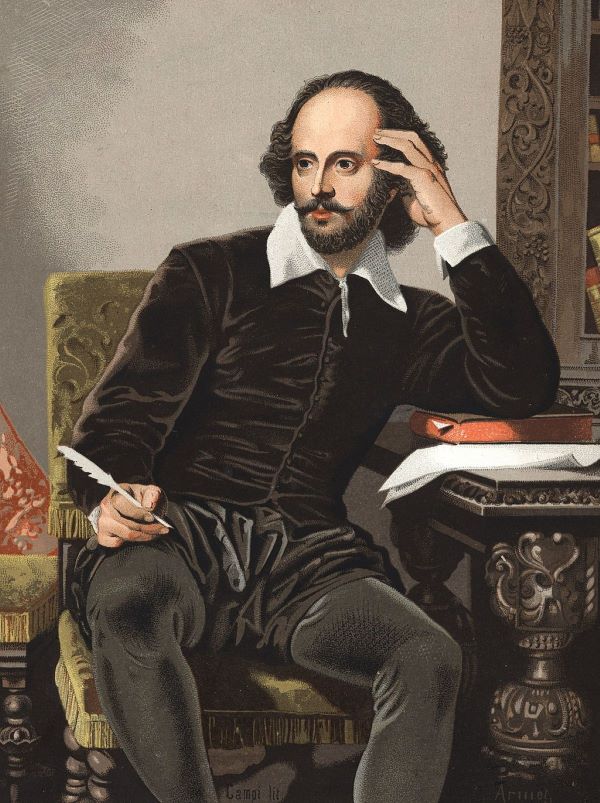
John Alvis's essay calls us to consider the intriguing subject of how Acton's famous maxim manifests itself in Shakespeare's plays. As a rule, absolute power does not fare well in Shakespeare's plays. None of Shakespeare's characters exhibit the unmitigated power exercised by
Marlowe's Tamburlaine in
Tamburlaine the Great,
[3] who, devoid of conscience and undefeated by external challenges, conquers vast territories, defeats countless enemies, and dies of natural causes at an advanced age. The closest Shakespearean analogy to Tamburlaine is Richard III, a Machiavellian character who rises to the British throne through lupine cunning (including pretense of piety) and the brute power of the lion and who, I aver in response to Alvis, has an even stronger "will to power" than Macbeth. But even the seemingly conscienceless Richard is eventually tortured by nightmares of his murdered victims;
[4] soon after, deserted by many of his forces during the Battle of Bosworth field, he is killed by the rebel leader, Richmond.
[5] Richard's outcome is typical for Shakespeare's characters who seek absolute power. They corrupt themselves while seeking and obtaining it, but their forays into absolute power are ultimately defeated by factors internal and external to themselves.
Richard III's ascension and downfall can be compared to those of Macbeth, whom Alvis addresses at length. Like Richard III, who arranges both the murder of his brother Clarence and the murders of his nephews the young princes,
[6] Macbeth breaks a taboo by murdering his sleeping guest, King Duncan, in his efforts to gain Duncan's throne. Alvis postulates that Macbeth is insufficiently Machiavellian to effectively secure power, pointing out Macbeth's failure to kill Malcolm, Danalbain, Macduff, and Banquo when he kills Duncan. But Macbeth, conscience riddled before he murders Duncan and even more so just afterward, is in no emotional shape to commit additional premeditated murders that night or in the short time after while his guests remain with him.
[7] Perhaps we can say that Macbeth at that point is not yet corrupted enough to secure absolute power. His rash murder of the framed guards the next morning shows both his continued moral descent as well as the incompetence Alvis mentions.
[8] But it is only later in the play, when in Act 3 he orders the assassinations of Banquo and Banquo's son Fleance (who escapes)
[9] and then in Act 4 when he orders the slaughter of Macduff's family,
[10] that Macbeth reaches absolute corruption even though, as Alvis observes, Macbeth's "limited intelligence prevents his actually attaining absolute power."
Macbeth's descent into absolute corruption runs parallel to his rejection of conscience, a rejection Alvis notes. Late in Act 1, just after speaking of his "Vaulting ambition," which Alvis notes, Macbeth is ready to repent of his bloody aspirations, telling Lady Macbeth, "
We will proceed no further in this business" [
Macbeth 1.7.31.] She then insults his manhood, goading him on to murder. In the next scene, while preparing to kill Duncan, Macbeth sees a vision of a bloody dagger, but instead of relenting, he tells himself that it leads him to his deed.
[11] Conscience plagues him immediately after the murder as he recounts to Lady Macbeth hearing Malcolm and Danalbain praying in their sleep. He is so incapacitated that she must take over and place his bloody daggers with the guards.
[12] But Macbeth continues to reject conscience, ordering more murders to secure his throne. After Banquo's murder, conscience torments Macbeth again through his vision of Banquo's ghost,
[13] but he does not repent; rather, he arranges for the aforementioned murder of Macduff's family, sealing his absolute corruption and confirming Macduff's resolve to kill the usurping king. We can compare Macbeth's final rejection of conscience to King Claudio's similar rejection in
Hamlet. Conscience stricken while watching the play whose events parallel his murder of his brother, King Hamlet, Claudio (another of Shakespeare's Machiavellian rulers) forgoes his opportunity for genuine confession and instead embraces total corruption by resolving to murder Prince Hamlet,
[14] an unsuccessful plot that ends in his own and many others' deaths.
I will speak more briefly to Antony and Cleopatra. Clearly Antony's attempts at absolute power are limited, as Alvis notes, by "[h]is doting upon Cleopatra" and his resultant "inattentiveness to military obligations," an inattentiveness Alvis specifically calls Antony's "corruption." There is an ironic dynamic at work with Antony's corruption and power. On one hand, Antony's power is what gives rise to his relationship with Cleopatra, whose penchant for powerful men was established with Julius Caesar. On the other hand, Antony's corruption through ungoverned affection for Cleopatra brings about his defeat to Octavian at Actium, ensuring that he will not gain absolute power. Alvis rightly observes that Antony fails to demonstrate "the self-command needed for generalship as well as for effective political rule," a self-command he had exhibited so glowingly after Caesar's murder in the earlier play. The character in Antony and Cleopatra who does demonstrate such self-command is Octavius, whose cold calculation foils Antony's emotional weaknesses. And, of course, Octavius becomes Caesar Augustus by the end of the play, attaining absolute power. But Shakespeare's Octavius, though a calculating politician, is not thoroughly corrupt, and one would be hard pressed to charge the historical Augustus Caesar with absolute corruption. His reign was not proper material, it seems, for another Shakespeare Roman play.
In his discussion of Antony, Alvis asks whether "declining in power may overcome corruption?" This question applies even better to Richard II than Antony, as Alvis's analysis of
Richard II suggests. Alvis effectively discusses Richard's corrupting arrogance and weakness for flattery, as well as his turn to virtue upon his deposition. Quoting Richard's famous statement, "
I wasted time and now doth time waste me," Alvis observes that Richard "Belatedly ... comes to self-knowledge." Richard's belated self-knowledge recalls the situation of another deposed Shakespearean ruler who had been seduced by flattery, King Lear. After his arrogant disowning of his beloved daughter Cordelia, his duplicitous daughter Regan points out, "
he hath ever but slenderly known himself" [
King Lear 1.1.292-93.]. It is only after his humiliating downfall that Lear repents of his mistreatment of Cordelia as well as his negligence of the unsheltered, admitting, as he is pelted by the storm, "
O, I have ta'en / Too little care of this!" [
King Lear 3.4.32-33.]. As with Richard, Lear's decline in power paves the way for the honest self-reflection that significantly reduces his corruption.
Richard's pious dignity leading up to his premature execution contributes mightily to the pall his death casts on the reigns of both his usurper, Bolingbroke (Henry IV), and Bolingbroke's son Henry V. Corrupted by Richard's usurpation and slaying, the new king Henry IV concludes
Richard II by announcing his imminent pilgrimage to the holy land,
[15] a venture that has been called a Machiavellian display of piety,
[16] and just before his death in
Henry IV, Part 2, he cries, "
How I came by the crown, O God forgive" [
Henry IV, Part 2 4.5.218.]. Henry's reign is plagued by civil war that prevents him from effectively exercising absolute power, and in his final scene, just before his aforementioned plea for forgiveness, Henry advises Prince Hal "
to busy giddy minds / With foreign quarrels," [
Henry IV, Part 2 4.5.213-14.] advice that the newly crowned Henry V takes to heart when he leads a united England to victorious war against France in
Henry V.
Although Henry V can be viewed as Shakespeare's most noble monarch, the case for his corruption is compelling. Matters of conscience concern him at key moments in the play, and he at least partially assuages his conscience as he proceeds forth with problematic action. Significantly, his claim against France is dubious. After hearing Canterbury's absurd justification for attacking France,
[17] Henry asks him, "
May I with right and conscience make this claim?" [
Henry V, Act I, sc.II, 96] Canterbury precedes his remaining justification with, "
The sin upon my head, dread sovereign!" [
Henry V 1.2.96, 97.] Henry ascents to the war only after he deflects responsibility first upon Canterbury and then afterward upon the French Dauphin, who offends Henry with a gift of tennis balls.
[18] Although the English people enthusiastically support the war, I suggest, in light of the thousands of French slain in an unjust war, that the absolute power Henry attains as ruler of England and France is attained at the cost of his corruption. As several scenes in
Henry V display, he becomes habitually self-justifying,
[19] and even if he believes his own self-justifying rhetoric, Shakespeare wants us to challenge it.
A mitigating factor against Henry V's absolute corruption, ironically, is his continued pangs of conscience regarding his father's usurpation of Richard.
[20] In solitary prayer before the decisive victory at Agincourt, Henry, even as he prays for victory, tells God, "
I Richard's body have interred new, / And on it have bestowed more contrite tears / Than from it issued forced drops of blood." [
Henry V 4.1.2.288-90.] Henry has also commissioned continual prayer and regular masses for Richard's soul. After his massive victory at Agincourt, Henry publicly credits God for England's triumph.
[21] It would be easy to charge Henry, like his father, with Machiavellian religiosity, but the solitary nature of his aforementioned prayer argues against such an accusation. Nonetheless, Henry's war is deeply problematic, and Shakespeare's chorus concludes
Henry V by stating how after his premature death his gains in France were lost by Henry VI and his various associates.
[22] I do not believe that Shakespeare portrays Henry V as absolutely corrupt, but he does portray the futility of absolute power, whose collateral damage is enormous.
The case of Prospero in
The Tempest is remarkable, as Alvis notes, for its example of "absolute power voluntarily renounced." Prospero's absolute power over his island is complex on a number of levels. Most significantly, early in the play, he tells his daughter, Miranda, "
I have done nothing but in care of thee." [
The Tempest 1.2.16.] This statement, I contend, reveals the core motivation for all his controlling actions on the island prior to and throughout the play, and his genuine love for Miranda, while perhaps inappropriately justifying some of his corruption, also works to prevent the vengeance he might otherwise indulge in. A charge often leveled against Prospero is his mistreatment of Caliban. I do believe Prospero likely overreacted to Caliban's romantic advances toward Miranda by charging him with rape and enslaving him.
[23] But Prospero's response is that of a protective father. He is far from absolutely corrupt, and his addiction to control is made understandable by both his love for Miranda and his previous usurpation by his trusted and beloved brother, Antonio.
[24] Prospero's relative goodness is seen early in the play in relation to the evil of Antonio, who, aided by King Alonso and Alonso's brother Sebastian, usurped Duke Prospero 12 years before. Antonio exemplifies one whose corruption is more total than his power; he shows no remorse for his treachery against Prospero, whom he believes dead; he mocks the very idea of conscience; he goads Sebastian into attempting to murder the sleeping Alonso.
[25] Shakespeare even indirectly mocks Antonio's corruption as he satirizes the corrupting effects of seeking power--even over a small island--through the comically ineffectual attempted murder of Prospero by Caliban and his drunken companions, Stephano and Trinculo.
[26]
Prospero's giving up his absolute power on the island is predicated upon both his love for Miranda and forgiveness. Through his power--largely by controlling Ariel--Prospero is able to secure for Miranda engagement with Prince Ferdinand, Alonso's son. But in the process of this arrangement, Miranda exercises independence, challenging or disobeying her father on several occasions,
[27] foreshadowing the fact that, as he gives her to Ferdinand, Prospero must relinquish the absolute control, however benevolent, he has exercised over her. Even more momentous is Prospero's willingness to forgive Antonio, Alonso, and Sebastian when they are completely at his mercy, even though only Alonso repents.
[28] But forgiveness for Prospero goes both ways. He knows he is not above reproach, as his epilogue's confession makes clear and as he suggests in his admission regarding Caliban: "
This thing of darkness I / Acknowledge mine." [
The Tempest 5.1.275-76.] I disagree when Alvis calls Caliban's repentance "untrustworthy." Rather, in his repentance Caliban ironically becomes an example Prospero imitates. Caliban promises to "
seek for grace," [
The Tempest 5.1.295.] which is exactly what Prospero does in his epilogue minutes later. Speaking to the audience, Prospero says,
Now I want Spirits to enforce, art to enchant, And my ending is despair, Unless I be relieved by prayer, Which pierces so that it assaults Mercy itself, and frees all faults. As you from crimes would pardoned be, Let your indulgence set me free. [The Tempest Epilogue 13-20.]
In giving up absolute power, Prospero seeks freedom from corruption, appealing to the One who, to quote Alvis, "uniquely among personal beings possesses absolute power," and humbly asking others to appeal to God's mercy on his behalf. The man who held absolute power over his small realm gains freedom because he realizes his powerlessness, his corruption, and his need for grace.
Endnotes
[3] Marlowe, "Tamburlaine the Great," in
The Works of Christopher Marlowe, ed. A.H. Bullen (London: John C. Nimmo, 1885). Vol. 1. <
/titles/1687>.
[4.] See
Richard III 5.3.118-206.
[5.] See
Richard III 5.5.
[6.] See
Richard III 1.3.324-56 and 4.2.1-82.
[8.] See
Macbeth 2.3.97-115.
[9.] See
Macbeth 3.1.76-143 and 3.3.
[10.] See
Macbeth 4.1.144-54 and 4.2.75-81.
[11.] See
Macbeth 2.1.33-64.
[12.] See
Macbeth 2.2.8-60.
[13.] See
Macbeth 3.4.38-108
[14.] See
Hamlet 3.3.36-72 and 97-98 and 4.3.62-72.
[15.] See
Richard II 5.6.45-52
[16.] Irving Ribner, "Bolingbroke: A True Machiavellian,"
Modern Language Quarterly 9.2 (June 1948): 177-84.
[17.] See
Henry V 1.2.33-95 and later 98-100.
[18.] See
Henry V 1.2.9-32 and 260-97.
[19.] See also
Henry V 2.1.79-83, 4.1.120-184, and 5.2.265-71
[20.] See
Henry V 4.1.282-98.
[21.] See
Henry V 4.8.105-120
[22.] See
Henry V Epilogue 9-12.
[23.] See
The Tempest 1.2.344-47.
[24.] See
The Tempest 1.2.66-151.
[25.] See
The Tempest 2.1.200-92.
[26.] See
The Tempest 3.2 and 4.1.194-262.
[27.] The Tempest 1.2.455-83 shows Miranda directly challenging Prospero several times; 3.1.16-59 shows her secretly disobeying him at least twice.
[28.] See
The Tempest 5.1.106-34.
 John Alvis begins his intriguing discussion of absolute power in Shakespeare’s plays with reference to Lord Acton’s observation that “power tends to corrupt. And absolute power corrupts absolutely.”
John Alvis begins his intriguing discussion of absolute power in Shakespeare’s plays with reference to Lord Acton’s observation that “power tends to corrupt. And absolute power corrupts absolutely.”
 John Alvis has put to Shakespeare the question: Do you, bard of Avon, agree with Lord Acton’s famous adage about power? It is an interesting question to pose to Shakespeare, for of all the writers we know of, he seems to portray the widest variety of human types, as well as to see most deeply into the human soul. Who better than Shakespeare to render a judgment on Lord Acton’s pronouncement?
John Alvis has put to Shakespeare the question: Do you, bard of Avon, agree with Lord Acton’s famous adage about power? It is an interesting question to pose to Shakespeare, for of all the writers we know of, he seems to portray the widest variety of human types, as well as to see most deeply into the human soul. Who better than Shakespeare to render a judgment on Lord Acton’s pronouncement?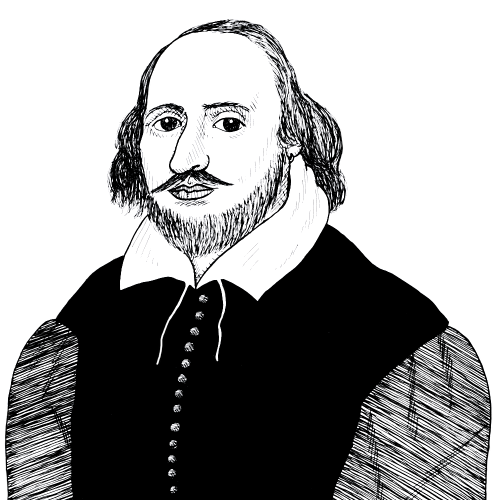
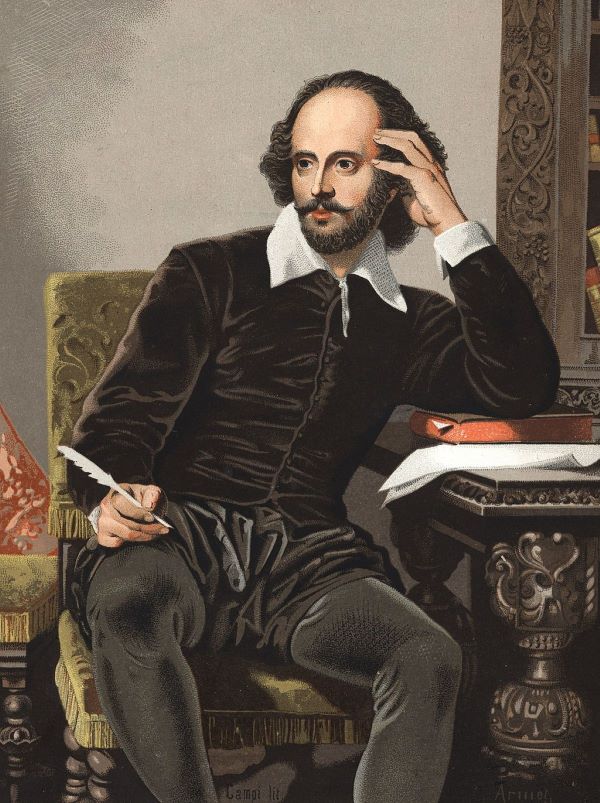 In "Power, Character, and Disorder," John Alvis responds to me in part by writing that Prospero "attributes his relenting to 'reason' rather than to 'grace.'" Here, it seems that Alvis sets up a false dichotomy between reason and grace, a dichotomy contradicted by many writers in the tradition of liberty, a dichotomy I suspect Alvis himself does not really affirm.
In "Power, Character, and Disorder," John Alvis responds to me in part by writing that Prospero "attributes his relenting to 'reason' rather than to 'grace.'" Here, it seems that Alvis sets up a false dichotomy between reason and grace, a dichotomy contradicted by many writers in the tradition of liberty, a dichotomy I suspect Alvis himself does not really affirm. 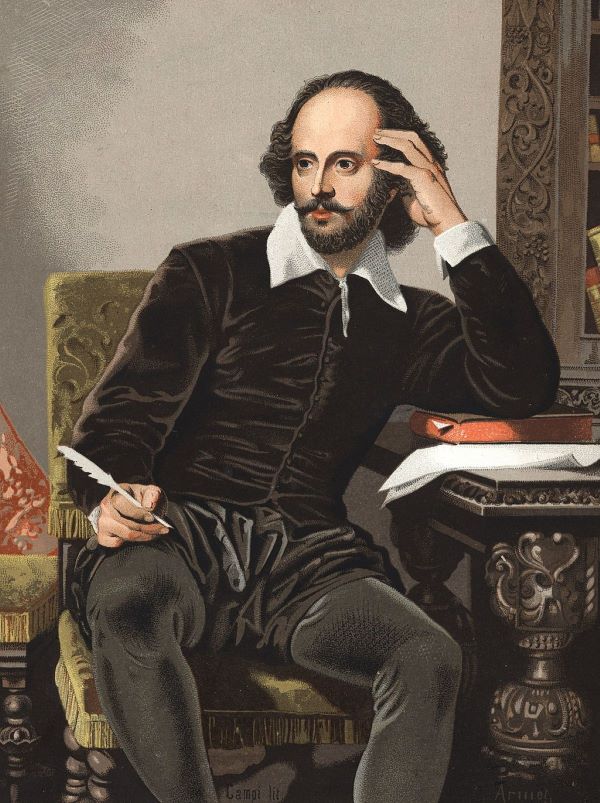
 In his response John Alvis proposes that we focus our attention on the question, “What theologico-moral-political precepts afford guidance in seeking to make power responsible?” This seems to me a good question on which to focus, but it also seems a difficult question to answer on Shakespeare’s behalf. First of all, as we have noticed in earlier parts of our discussion, Shakespeare gives us precious few examples of corrupted men of power becoming more responsible. Prospero and Theseus have been mentioned. David Urban has appealed to the place of conscience: quite a few of the rulers we see in the plays are indeed afflicted by bad conscience. He brings forward Richard III, Macbeth, Claudio, Henry IV, Henry V, Prospero, and Angelo. If conscience is such a force to reproach and correct the tyrant, then we appear to be in good luck that such a natural (per Adam Smith) or divinely ordained force so universally present (or nearly so) rises to reproach men for their bad behavior. But Urban goes on to raise the nearly unavoidable question: “to what extent has the irreligious man’s conscience proven efficacious against the absolute corruption Acton considered endemic to absolute power?”
In his response John Alvis proposes that we focus our attention on the question, “What theologico-moral-political precepts afford guidance in seeking to make power responsible?” This seems to me a good question on which to focus, but it also seems a difficult question to answer on Shakespeare’s behalf. First of all, as we have noticed in earlier parts of our discussion, Shakespeare gives us precious few examples of corrupted men of power becoming more responsible. Prospero and Theseus have been mentioned. David Urban has appealed to the place of conscience: quite a few of the rulers we see in the plays are indeed afflicted by bad conscience. He brings forward Richard III, Macbeth, Claudio, Henry IV, Henry V, Prospero, and Angelo. If conscience is such a force to reproach and correct the tyrant, then we appear to be in good luck that such a natural (per Adam Smith) or divinely ordained force so universally present (or nearly so) rises to reproach men for their bad behavior. But Urban goes on to raise the nearly unavoidable question: “to what extent has the irreligious man’s conscience proven efficacious against the absolute corruption Acton considered endemic to absolute power?” 
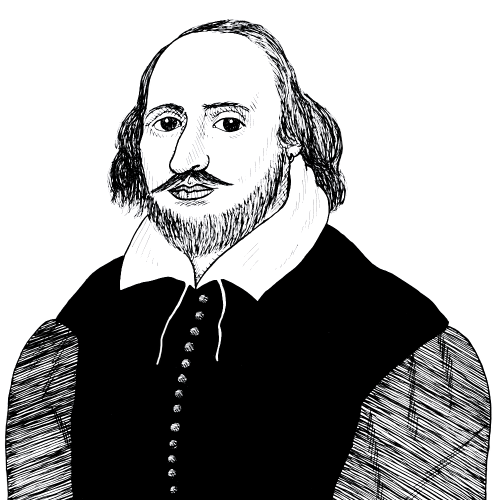 Now indeed we’ve entered deep waters. David Urban reminds us that an even greater and much more controversial issue than power corrupting has been the relation between reason and divine grace.
Now indeed we’ve entered deep waters. David Urban reminds us that an even greater and much more controversial issue than power corrupting has been the relation between reason and divine grace.